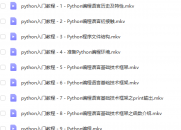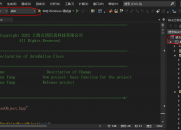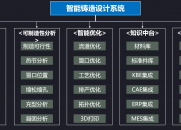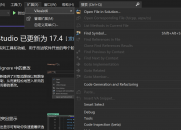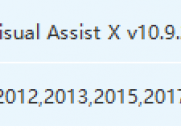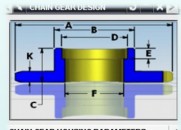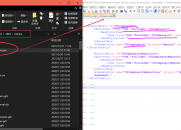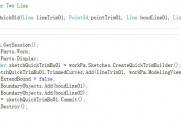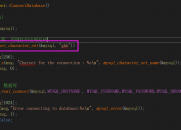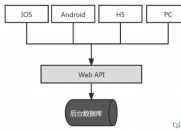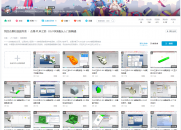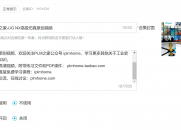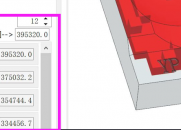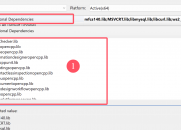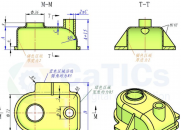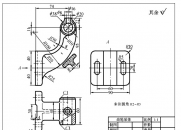|
|
这个是加载零件到内存 6 Z0 q* i( G$ S0 ~/ Z# i
2 v8 t/ X9 i& G/ e" Z
UF_PART_open_quiet (view source)
0 ^& e0 O# k k$ [# T 9 r$ I9 t1 ^7 @4 W' {
4 j% {' ~ M" L7 {: G
Defined in: uf_part.h
6 [2 H2 v9 W/ M : u- A* L4 P+ u' H; _' |' w
# p" U$ P4 i: U( Z, O& x2 W% R
2 ?+ e; G- f- m3 u, @Overview& y5 ~# w( a5 }
% L) } v0 i4 ], L3 u
4 Y" ~; O# [+ y. [
Retrieves an existing NX part or Solid Edge part into the session
+ L1 d& P: M/ K' |& c. _without making it the work and display part. Solid Edge parts (.par or 0 t1 e" }- w/ d- W1 @4 H
.psm file extension) are opened by extracting the Parasolids data from
0 t' R/ _3 M3 b5 y' p3 kthe Solid Edge part and then importing this data into a new
( s4 _0 ]1 t* e) F1 n4 c' tNX part with a .prt extension. The file name of the new NX
6 d% ~- K% v. i9 t0 S3 _: _part has the Solid Edge part name and a ".prt" file extension. & |" S$ ^6 v7 b3 T" B
If there is an existing NX part with the same name as the Solid Edge part,
4 y* } L% y- a8 tthen this function returns an error. 5 ]- b+ ?* _. D
# Q& `) t' a+ ~1 J7 n. `3 {' @; C4 B2 M% M
' {* C% X5 { a4 z+ hEnvironment! P$ j# T" l! v4 o, M1 m7 q B
' X& U. I5 P. F7 \+ g
! O3 F$ {" F- c8 J6 [Internal and External " N# z U7 \% I' `) R L7 U- u4 R+ N; y
$ j+ l x) ^& x, t6 k$ L+ @/ L/ t
( t* @4 b6 A9 ]6 n$ _
History
) b" N+ M3 L' G1 D# }% X
4 H# Y# `. P5 i8 v8 Z
1 A3 v# g, j0 C7 x- ~& UIn V15.0, this function was enhanced so that it could open Solid Edge
* W; b- l* X# n) E5 S5 d. \" R parts. ) d& K/ c. {, h8 k
5 j [9 n; G4 A# r* Y1 @
8 Q: ], a9 H+ p( q7 C9 h! o7 o& s/ ]" N _
Required License(s)
) u5 h2 H" j5 ^9 g! i
: a' @' d+ g2 A4 O) a3 X/ r! _# _, y
gateway3 d& c! p7 F0 D( U; z/ g
& }8 r# S( e" ]/ G6 M+ H6 p. [6 q9 v+ A+ L& r$ Z
5 h9 X4 L6 m9 u4 Z
! P) l" _ E5 Z- d1 ^9 T
int UF_PART_open_quiet
! A6 D7 K! D. S(
) x3 y+ C. [. D' A9 i
/ d8 u W! T' U: R" Cconst char * part_name,
c. J! c9 M$ s8 n9 I! htag_t * part,
' d `" Z* \4 w0 G! WUF_PART_load_status_t * error_status
" b" F; ~" G0 L* j% {- D* L2 l& p4 U3 i2 s1 D f: d$ F( q6 o( c% v: e
)3 \. e9 A8 g# _
5 V+ E4 {3 N+ h- m+ bconst char * part_name Input Name of part to retrieve. # k# S! x0 K- X- H5 e5 ?- f- K& q
tag_t * part Output The tag of the retrieved part or NULL_TAG if part
$ O( F" G& f' a; Z$ V$ \: A! M retrieval fails.
+ e6 F$ y( R( {& A UF_PART_load_status_t * error_status Output to UF_*free* The user allocated structure g0 f1 r$ R3 R3 ]3 G
<error_status> is filled with the names 7 n5 g% v3 b' A. N) E3 `- R4 ?( Q: o
and associated error codes of any parts
. V. r% b& e# [$ G# v1 U that did not load correctly. The
# C" s+ X# _& R* d% y# O+ | structure must be freed with UF_PART_free_load_status.
6 }8 [% v, i5 w# t For details see the definition * T* n" \5 i$ B2 m) U2 Q# c- Y
of UF_PART_load_status_t. ' ]! g x1 d. n- r
|
|
